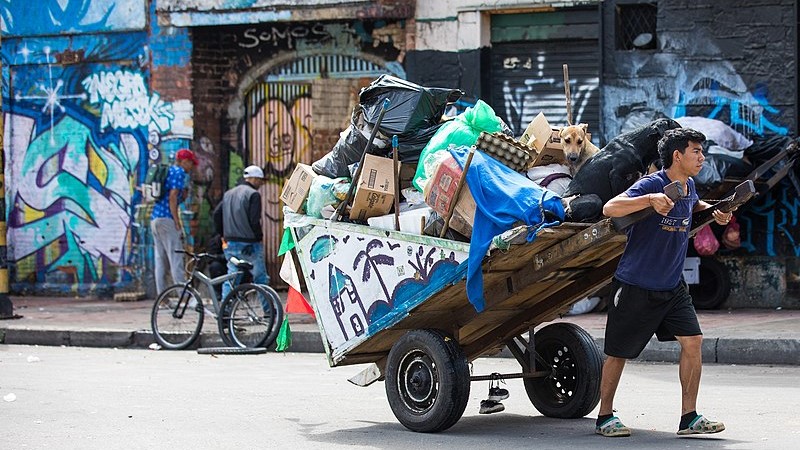GRID
Plastic pollution has reached devastating levels across the globe, causing damage to wildlife, the economy, tourism and infrastructure. With an estimated 80% of ocean plastic originating from land-based sources, there is an increasing scientific consensus that critical action is needed to prevent plastic entering the environment at its source. Some of the most effective interventions are those that capitalise on the inherent value in plastics by generating income for the world’s poorest people whilst improving material circularity.
The informal recycling sector (IRS) is one of the most effective forces for the prevention of plastic pollution in low and middle income countries, with recent estimates suggesting as much as 60% of all plastic recycled worldwide being collected by its participants. Despite this, the IRS has many negative connotations associated with it due to its perceived threat to formal waste management systems, health and safety challenges, and engrained negative social connotations. Likewise, the informal nature of their work means the sector’s valuable contribution towards recycling and plastic pollution prevention often go unnoticed.

Waste picker Bogotá, Colombia.
Increasingly, the IRS is suggested as a solution to plastic pollution. Supporting the sector’s collection efforts, promoting door-to-door collection instead of dumpsite picking, and encouraging inclusion in the waste management system by methods such as cooperatives; the IRS is arguably the only scalable, rapid, inclusive and inexpensive solution to plastic pollution. However, currently a major barrier towards realising the IRS as a means to prevent plastic pollution is the lack of a reliable, scientific and standardised method to quantify the contributions of the IRS both presently and in future scenarios. Only once this has been achieved can interventions be identified and prioritised in a structured, transparent approach.
